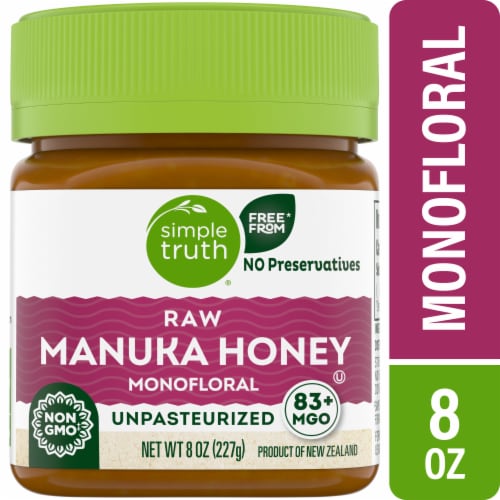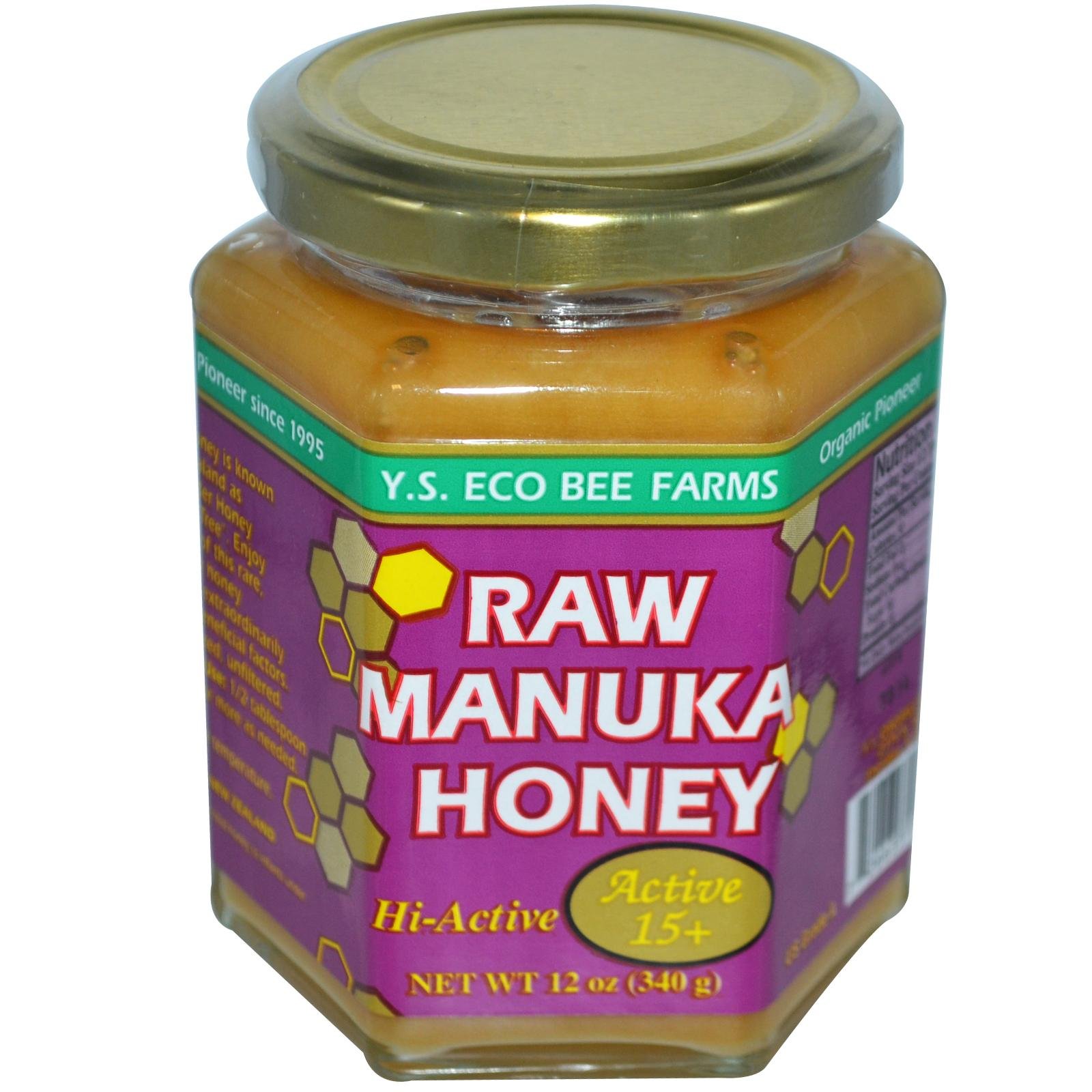
You might be curious to know if manuka honey is indeed raw. Well, the truth is, manuka honey is not classified as “raw” in the traditional sense. Although it undergoes minimal processing, such as straining and filtering, to remove impurities, it is still considered to be in its purest form. So, if you’re looking for a deliciously natural sweet treat, manuka honey might just be the answer you’re searching for.
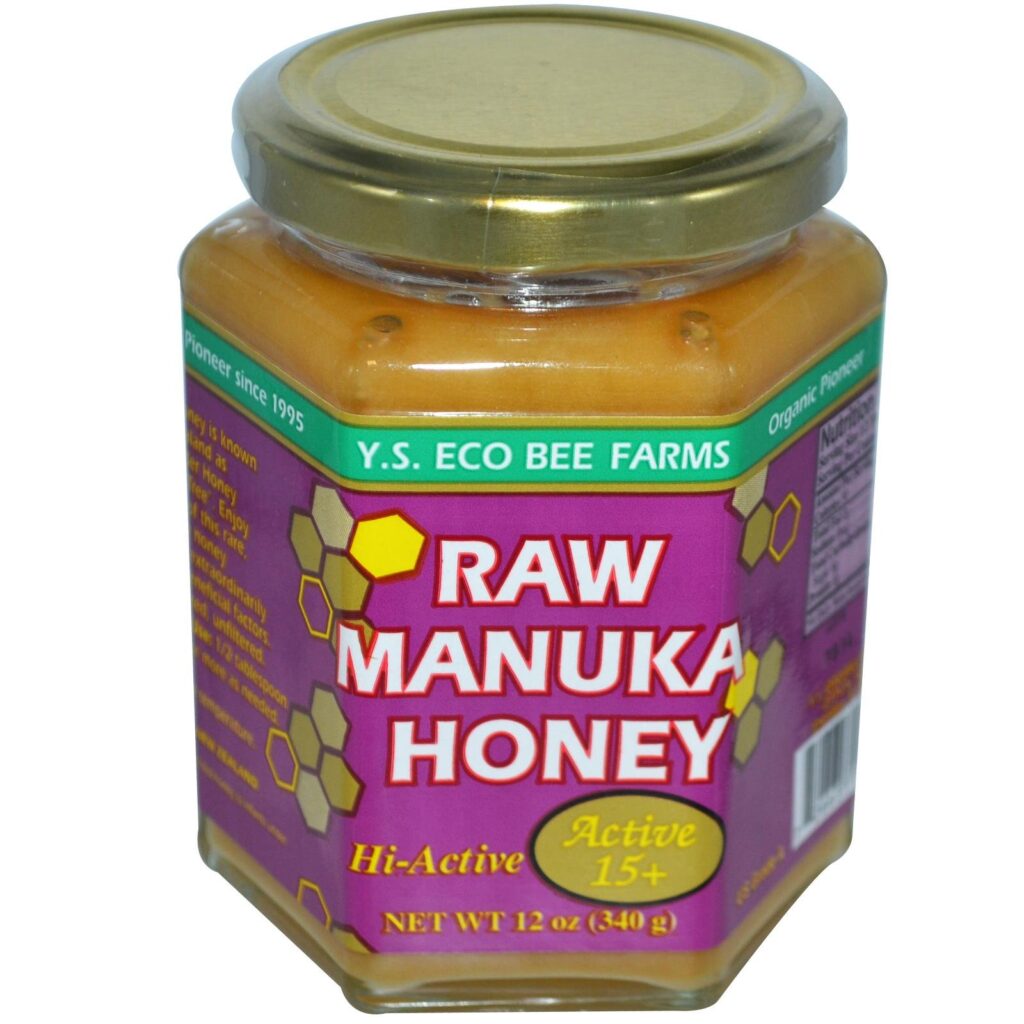
What is Manuka Honey
Manuka honey is a unique type of honey that is sourced from the nectar of the manuka tree (Leptospermum scoparium), which is native to New Zealand. This honey has gained immense popularity in recent years due to its potential health benefits, distinct flavor, and unique composition. Manuka honey is known for its rich, dark color and thick, viscous texture. It has a strong, slightly bitter taste with hints of caramel and earthiness.
Source of Manuka Honey
The primary source of manuka honey is the manuka tree, also known as the tea tree or jellybush. This tree blooms with small, white flowers that attract bees, and it is from these flowers that the bees collect the nectar to make honey. The manuka tree is endemic to New Zealand, and its unique properties contribute to the distinctive characteristics of manuka honey.
Composition of Manuka Honey
Manuka honey is not only delicious but also unique in its composition. It contains a range of beneficial compounds that set it apart from other types of honey. One of the key components of manuka honey is methylglyoxal (MGO), which is responsible for its antimicrobial properties. Manuka honey also contains hydrogen peroxide, which gives it additional antibacterial qualities. Additionally, it is rich in antioxidants, amino acids, vitamins, and minerals, making it a potential nutritional powerhouse.
The Raw Honey Debate
Defining Raw Honey
Before diving into the discussion of whether manuka honey is raw or not, it’s important to understand what raw honey actually means. Raw honey is the purest form of honey, obtained directly from the beehive without undergoing any significant processing or heat treatment. It is extracted, strained to remove impurities like wax and bee particles, and then bottled. Raw honey retains all the natural enzymes, pollen, propolis, and other health-promoting substances that are often lost during commercial processing.
Processing Methods
Unlike raw honey, commercially available honey often goes through various processing methods. These processes may include filtering, pasteurization, and ultrafiltration. Filtering involves removing any solid particles from the honey, while pasteurization refers to heating the honey at high temperatures to kill any yeast or bacteria present. Ultrafiltration is a process that involves removing pollen grains from honey, potentially compromising its quality and nutritional value.
Raw or Not: Manuka Honey
Is Manuka Honey Raw?
The question of whether manuka honey is raw or not has sparked a lot of debates among honey enthusiasts. The answer to this question is not straightforward, as it depends on various factors. While some types of manuka honey are considered raw, others may undergo minimal processing that makes them not completely raw.
Factors Affecting Rawness of Manuka Honey
The rawness of manuka honey depends mainly on the processing methods used. Some producers obtain manuka honey by simply extracting it from the beehive and straining it to remove impurities, making it classified as raw honey. However, others may use heat treatment or filtration methods that can alter its raw status. It is important to carefully read labels and understand the processing methods used by different brands to determine the rawness of manuka honey.
Benefits of Raw Manuka Honey
Potential Nutritional Value
raw manuka honey is believed to offer a range of potential health benefits due to its nutritional value. It contains a variety of vitamins, minerals, and amino acids that can support overall well-being. These nutrients play a vital role in maintaining a healthy immune system, promoting digestion, and nourishing the body. Consuming raw manuka honey may provide a natural energy boost and enhance the body’s ability to fight against harmful bacteria and infections.
Antioxidant Content
Raw manuka honey is also rich in antioxidants, which are beneficial compounds that help protect the body against free radicals. Free radicals are unstable molecules that can cause oxidative stress and contribute to a range of health issues. The antioxidants found in raw manuka honey can help neutralize these harmful free radicals, reducing the risk of chronic diseases and promoting overall cellular health.
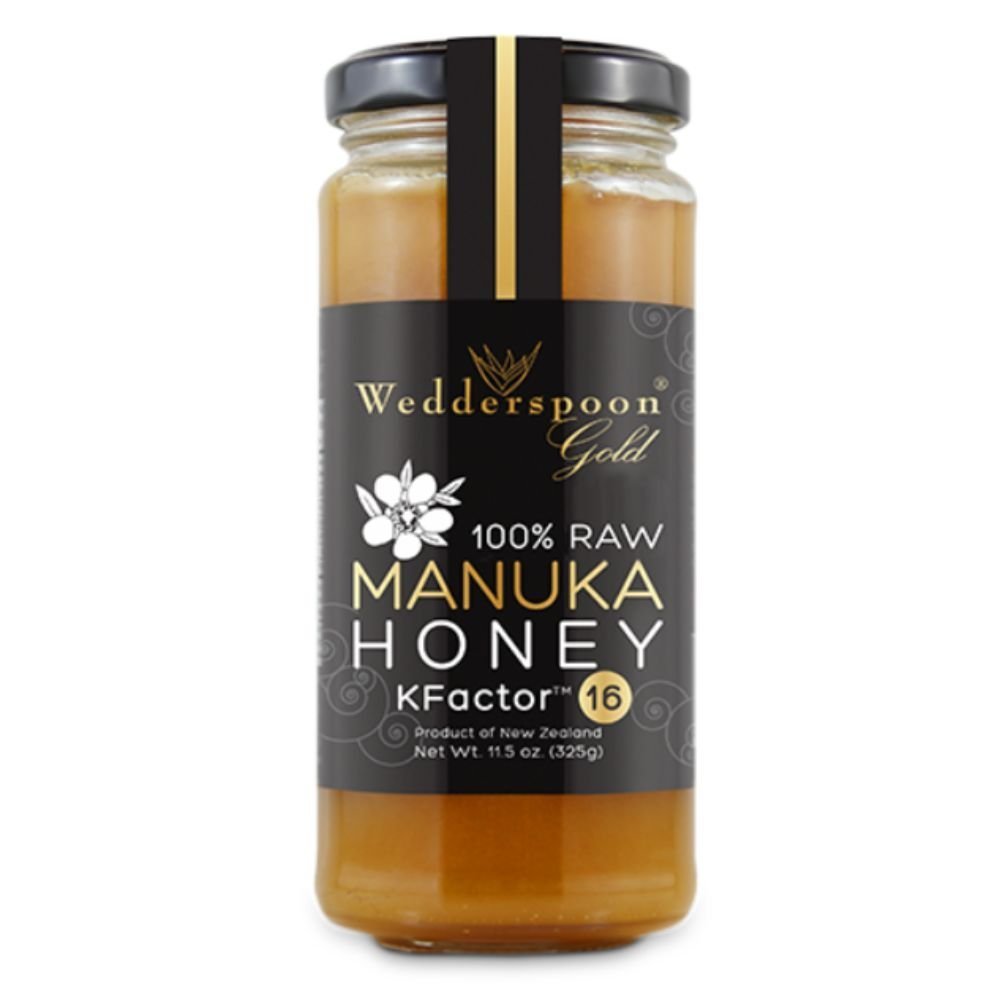
Quality Factors
UMF Ratings
UMF (Unique Manuka Factor) is a grading system used to measure and identify the quality of manuka honey. The UMF rating is based on the honey’s concentration of methylglyoxal (MGO) and other specific markers that determine its purity and potency. A higher UMF rating indicates a higher level of medicinal properties. When purchasing manuka honey, it’s advisable to look for a UMF rating of 10 or above to ensure you are getting a high-quality product.
Packing and Storage
The quality of manuka honey can also be affected by its packing and storage. It is essential to choose a reputable brand that uses proper packaging methods to maintain the honey’s freshness and quality. High-quality manuka honey should be stored in a cool and dark place, away from direct sunlight and heat. Proper storage conditions help preserve its beneficial properties and extend its shelf life.
How to Identify Raw Manuka Honey
Labeling and Certifications
When looking to purchase raw manuka honey, paying attention to the labeling and certifications can provide a glimpse into its rawness. Look for terms like “raw,” “unprocessed,” or “unfiltered” on the label, as these indicate that the honey has undergone minimal processing. Additionally, certifications from reputable organizations, such as the UMFHA (Unique Manuka Factor Honey Association), can guarantee the authenticity and quality of the product.
Lab Testing
Another way to ensure the rawness of manuka honey is through lab testing. Some companies conduct laboratory tests to verify the presence of specific markers, such as MGO, to confirm the authenticity and quality of their manuka honey. These lab reports can provide consumers with confidence in their purchasing decision and assure them that what they are buying is indeed raw manuka honey.
Where to Find Raw Manuka Honey
Specialty Stores
Raw manuka honey can often be found in specialty stores that focus on natural and organic products. These stores prioritize offering high-quality, raw honey options to cater to health-conscious consumers. By visiting these specialty stores, you can have a better chance of finding raw manuka honey produced by trusted brands with minimal processing.
Online Retailers
In today’s digital age, finding raw manuka honey has become easier than ever. Numerous online retailers specialize in providing a wide selection of raw and organic food products, including manuka honey. When purchasing online, make sure to read the product descriptions, reviews, and check for proper certifications to ensure you are getting genuine raw manuka honey.
Tips for Using Raw Manuka Honey
Dosage and Usage
When incorporating raw manuka honey into your daily routine, it’s important to keep in mind the recommended dosage and usage guidelines. Typically, consuming one to two teaspoons of raw manuka honey per day is considered beneficial. However, individual needs may vary, so it’s best to consult with a healthcare professional or naturopath to determine the appropriate dosage based on your specific health goals.
Precautions and Allergies
While manuka honey is generally considered safe for consumption, it is essential to exercise caution if you have any known allergies to bee products or are diabetic. Some people may experience allergic reactions, so it is advisable to do a patch test before consuming large quantities. Additionally, individuals with diabetes should monitor their blood sugar levels closely when incorporating manuka honey into their diet.
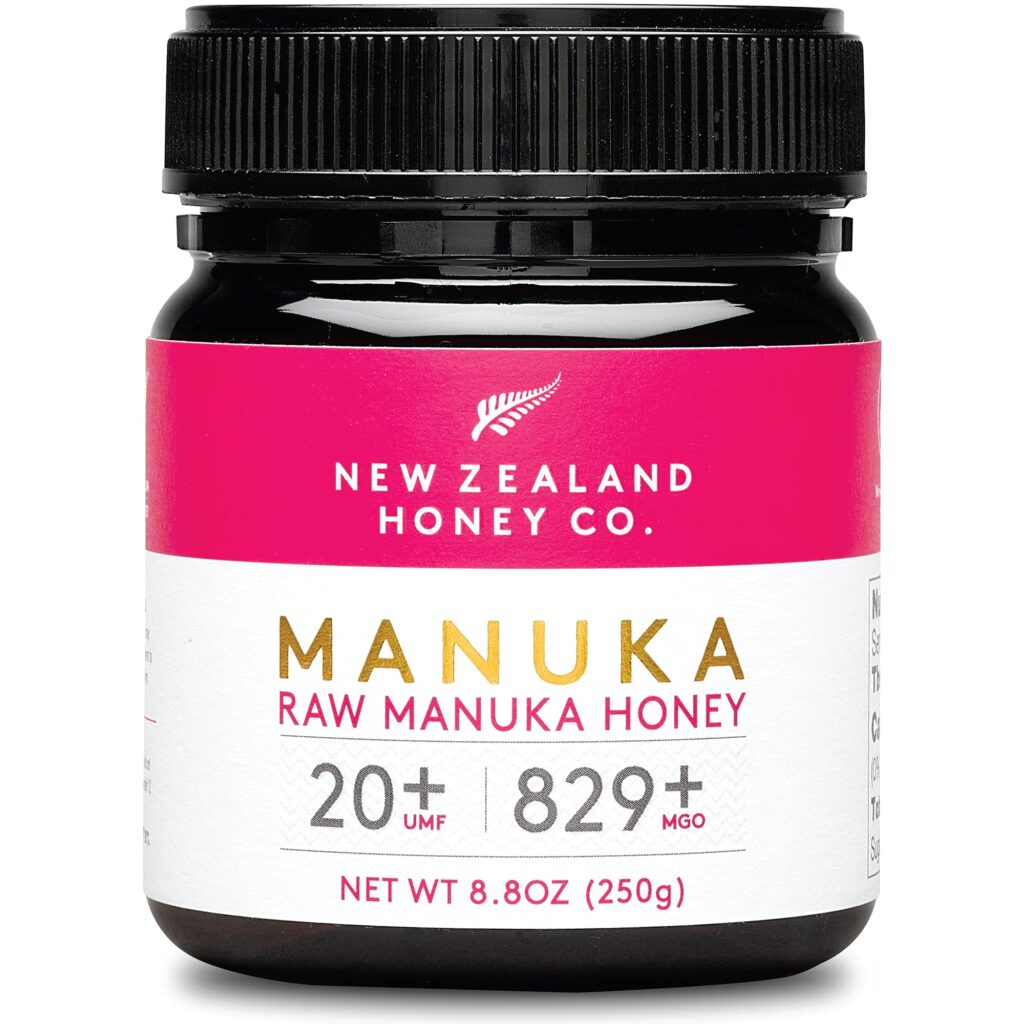
Conclusion
Manuka honey is a truly remarkable gift from nature, offering a myriad of potential health benefits and unique flavor. While the rawness of manuka honey can vary depending on processing methods, seeking out raw and minimally processed options can enhance its natural properties. By understanding the composition, sourcing, quality factors, and how to identify raw manuka honey, you can make informed choices and reap the maximum benefits from this incredible honey variety. Whether you use it as a natural sweetener, a topical treatment, or as a natural remedy, raw manuka honey is sure to bring a touch of sweetness and well-being to your life.
